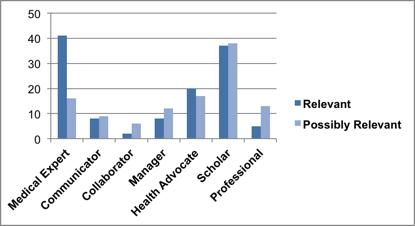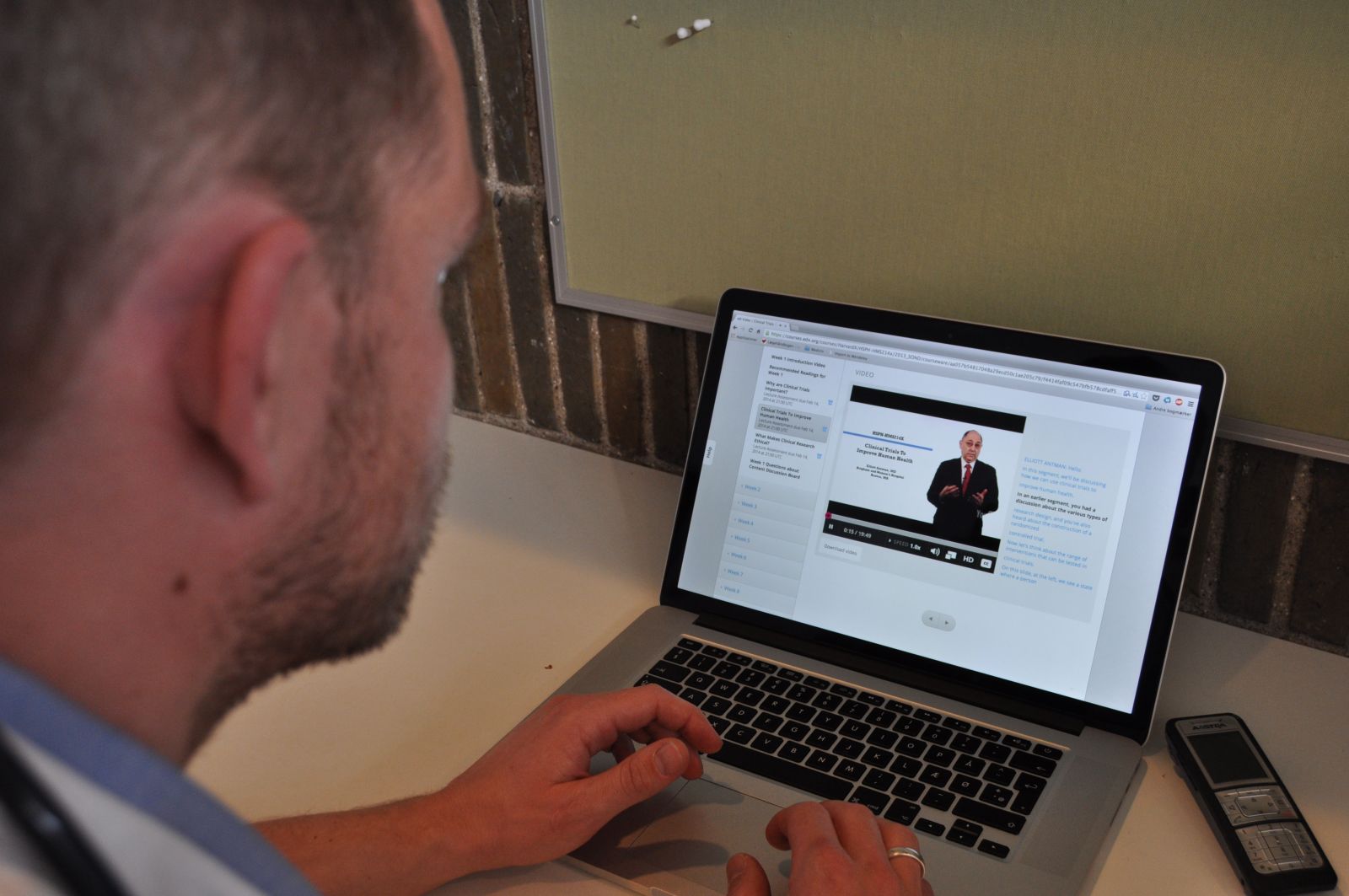
|
Authors | Institution |
|
Nilsson PM Subhi Y Andresen K Bojsen SR Konge L |
Centre for Clinical Education, Capital Region Denmark |
 |
|
||||||
| Massive Open Online Courses (MOOCs) are relevant for postgraduate training of physicians |
The CanMEDS framework: seven roles in postgraduate training.
Limited training and courses relevant to these roles.
Massive Open Online Courses (MOOCs) – free online courses in which anyone can participate.
This study investigates the relevance of MOOCs for postgraduate medical training within the CanMEDS framework.
We extracted a list of all courses posted by the two largest MOOC providers, Coursera and EdX, and reviewed all course descriptions and categorized each course into one of three categories – “relevant,” “possibly relevant” or “not relevant” – reflecting the degree of relevance to each of the seven CanMEDS roles. We also noted course workload, duration, and the name of the educational institution.

165 courses were found relevant or possibly relevant. Mostly to the roles of scholar (n=75) and medical expert (n=57).
Highest agreement on role of health advocate (Cronbach’s α=0.85), and the least on the role of collaborator (Cronbach’s α=0.46).
Median course duration of 7 weeks.
Median weekly workload of 4.5 hours.
Predominantly from North American universities.
A large number of MOOCs are relevant for postgraduate medical training. A weekly workload of 4.5 hours may enable course participation even for busy clinicians. Physicians should consider these free and universally available courses as relevant and potentially effective means of education.

Physician using a MOOC during downtime.
Danish Medical Journal 2014 (in press)
 Send Email
Send Email
